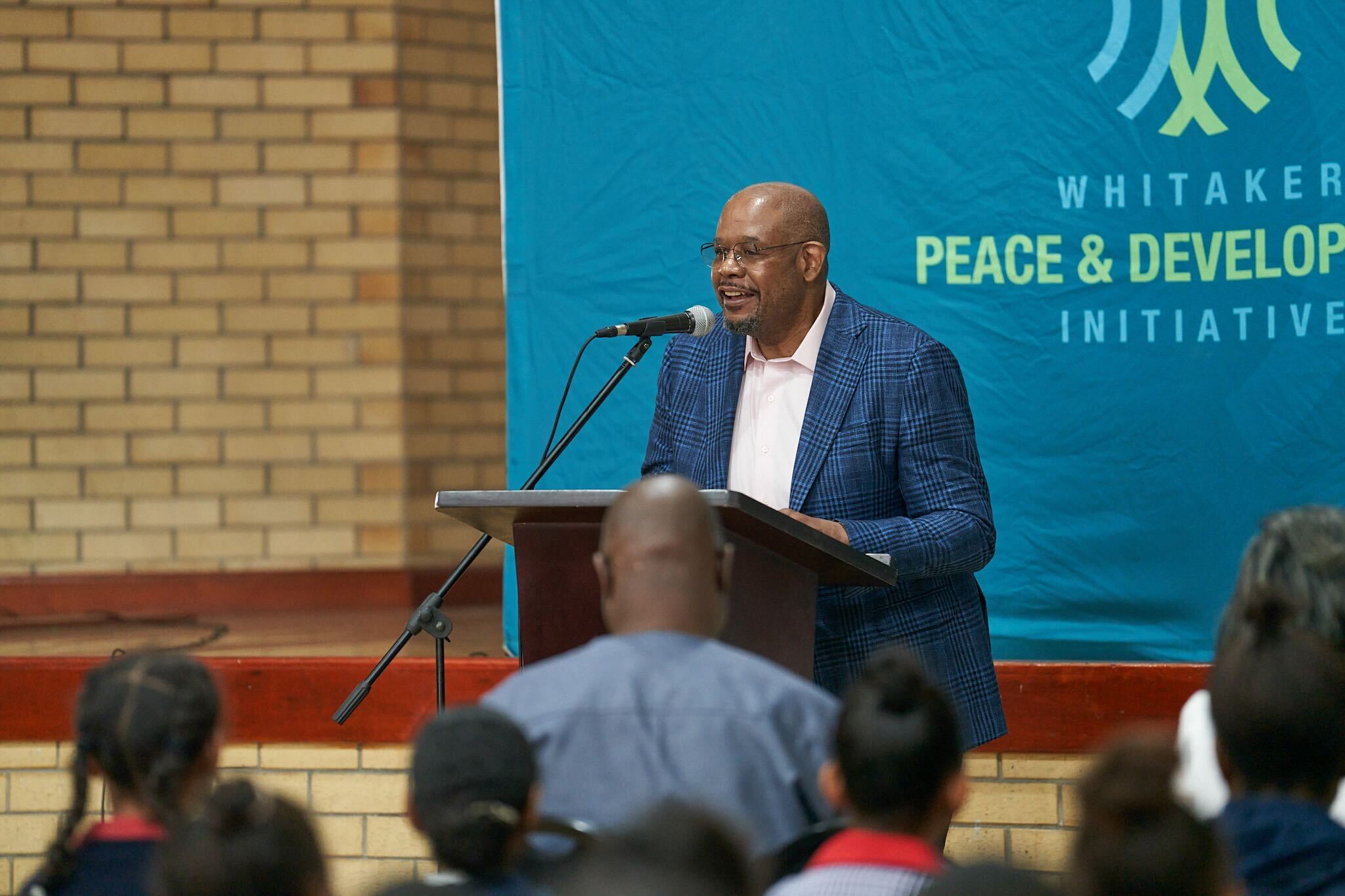
A blog post by Forest Whitaker on World Social Justice Day
February 20, 2025 – Justice is not simply about fairness in distribution—it is about ensuring that every individual has the opportunity to realize their potential. The theme for this year, Empowering Inclusion: Bridging Gaps for Social Justice, speaks to the urgent need for societies to dismantle barriers that keep millions from fulfilling their aspirations. This is not just a call for better policies; it is a call to empower individuals to be agents of their own change. This idea has been the backbone of WPDI for over 10 years.
For too long, we have framed social justice primarily as a matter of redistribution—of wealth, of access, of rights. While these are undeniably crucial, true justice demands more. It requires that we foster environments where people are not just recipients of aid but active participants in shaping their own futures. This means investing in education, cultivating lifelong learning, and ensuring that people have the mental and emotional wellbeing necessary to engage with the world around them.
Education has always been one of the most powerful tools for social transformation. When children and young adults, regardless of background, have access to quality education, they gain the ability to break cycles of poverty and exclusion. But education must be more than access to schools, it is about more than that. It must be a means of empowerment, it must encourage critical thinking, self-confidence, and the entrepreneurial spirit that allows individuals to create their own opportunities. This is essential for creating stable, peaceful societies.
In my work with WPDI, I have seen firsthand how education can empower marginalized communities. From South Sudan to Mexico, I have met young people who, given the right resources and mentorship, have become leaders in their communities, spearheading local businesses, conflict resolution initiatives, and educational programs. They are not simply recipients of aid; they are changemakers redefining their futures and those of their communities.
Real progress happens from the ground up. Social justice is not merely about policies handed down from above but about equipping individuals and communities with the tools they need to innovate and drive change from within. This is why we must support grassroots initiatives that promote skills training, entrepreneurship, and local leadership. Communities that are empowered to solve their own challenges are far more resilient and sustainable than those that rely solely on external interventions and financial aid.
We must also acknowledge that one of the most overlooked aspects of social justice is mental health. Systemic inequality often goes hand in hand with trauma, stress, and a sense of helplessness. If we are to truly empower individuals, it is vital to ensure they have access to mental health resources that allow them to heal, find their voice, and participate fully in society. Mental wellbeing is not a luxury—it is a fundamental component of inclusion and justice.
If we want a just society, we must do more than redistribute resources. We must create pathways for every individual to demonstrate their value and capacity for change. This means investing in education, prioritizing mental health, and fostering bottom-up innovation that empowers communities to take charge of their own destinies.
Today is a day for us all to commit to empowering people. When we do that, we don’t just bridge gaps; we build a future where no one is left behind, and everyone has the chance to thrive.